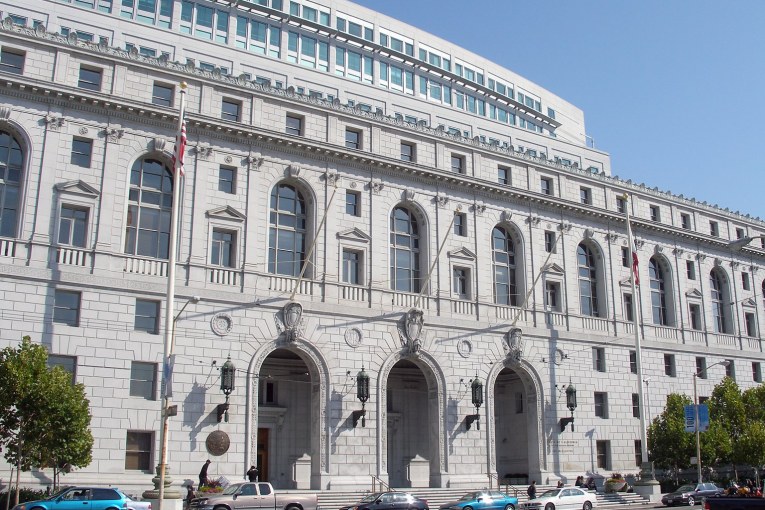

By David M. Greenwald
Executive Editor
San Francisco, CA – In most states, people who did not actually take part in a killing of an individual and may have very little to do with the actual crime can nevertheless be convicted of murder and sentenced to life in prison. Such was the case in California under the felony murder rule prior to SB 1437.
Senator Nancy Skinner’s law not only limited the cases where felony murder could be provide but created a look-back mechanism, a procedure by which people convicted of murder could seek retroactive relief in the form of resentencing.
The courts largely determined have dealt with the issue of constitutionality, but need to work out additional facets.
In the case of People v. Lewis, the court ruled in favor of giving those convicted of felony murder a better chance for relief under 1170.95. The court in this case, “considered the record of conviction without appointing counsel and summarily denied defendant Vince E. Lewis’s section 1170.95 petition. The Court of Appeal concluded this procedure was proper.”
The California Supreme Court unanimously overruled that decision.
“(W)e conclude that the statutory language and legislative intent of section 1170.95 make clear that petitioners are entitled to the appointment of counsel upon the filing of a facially sufficient petition,” Justice Josua Groban writing for a unanimous court. He further ruled, “only after the appointment of counsel and the opportunity for briefing may the superior court consider the record of conviction to determine whether “the petitioner makes a prima facie showing that he or she is entitled to relief.””
Lewis was convicted in 2012 of killing fellow Easy Riders gang member Darsy Noriega for her apparent disloyalty to their gang.
At trial, there was tesitmony that Noriega was ordered to attend a gang meeting called by Lewis on the night of her death.
Lewis told a number of people to accompany him to buy beer during the meeting.
After leaving the liquor store, Lewis drove around, eventually parking on a street near an alley and remained in the car as the others got out of the car, went to the alley and shot Noriega to death.
The prosecution’s gang expert offered testimony that “in general a gang meeting is required to
decide whether a member needs to be disciplined and only one person in the gang, the ‘shot caller,’ can call such a meeting.”
Lewis was among three convicted of first degree murder and gang enhancements. Lewis, who did not personally discharge the firearm, was sentenced to 25 to life.
Three of them have appealed and while their appeal is pending, the Supreme Court in People v. Chif found, “that natural and probable consequences liability cannot extend to first degree premeditated murder because punishing someone for first degree premeditated murder when that person did not actually perpetrate or intend the killing is inconsistent with ‘reasonable concepts of culpability.’ ”
The court notes, that the court in Lewis, agreed with Lewis, “that, under Chiu, the trial court erred by instructing the jury that it could convict him of Noriega’s murder if he aided Herrera in an
assault on Noriega with force likely to produce great bodily injury and that murder was the natural and probable consequence of the assault.”
At the same time, the court concluded that the “error was harmless” because “the record showed that Lewis directly aided and abetted Herrera in the deliberate, premeditated murder of
Noriega.”
The court then began reviewing Lewis’ claims under SB 1437 starting in February 2019.
“On February 4, 2019, the superior court, without appointing counsel, summarily denied the petition by minute order. “
The court concluded, “that Lewis did not make a prima facie case for resentencing under Senate Bill 1437 because, based on the Lewis I court’s decision on direct appeal, he “would still be found guilty with a valid theory [direct aiding and abetting] of first degree murder.”
The court says that the Legislature recognized the potential significant costs associated with early counsel appointments.
At the same time, they recognize, “Permitting trial courts to summarily deny relief before the
appointment of counsel would not significantly conserve judicial
Resources.”
Instead they note following previous precedent, “[E]ven assuming the practice leads to short-term efficiencies, those savings are a false economy that shifts work from trial counsel to appellate counsel and from the trial courts to the appellate courts.”
The court here ruled that erroneous denial of counsel does not require automatic reversal. Instead, a petitioner must show it is reasonably probable that the denial was prejudicial.
The court here notes that the contention by Lewis still “leaves open the possibility of harmless error.”
Lewis argues, “Counsel could have assisted Mr. Lewis in making a prima facie factual case that his conviction for murder rests on now-forbidden natural and probable consequences reasoning.””
However, the AG’s office disagrees.
The court writes: “We decline to resolve this dispute and remand the cause to the Court of Appeal for an evaluation of prejudice under Watson in the first instance.”
Thus the case is now remanded back to the court of appeal for a determination.


David, I am really interested in this issue– but for the life of me cannot understand your narrative.
What are the issues? What did the Court rule? What did lower courts rule?
Thanks.. Susan
The issue was whether a person filing for relief under SB 1437 is entitled to an attorney before the court summarily dismisses it. The court decided that they are. And then remanded the case back to the appellate court to determine if there is actual harm in this case (I think that’s where the issue gets a little convoluted).